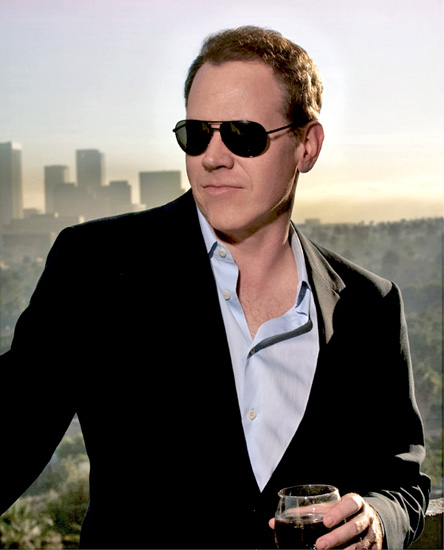Bret Easton Ellis published his first novel “Less Than Zero” in 1985 when he was 21 and a student at Bennington College. Over the past 25 years, Ellis has written seven books, including “The Rules of Attraction” and “American Psycho,” a novel controversial for its graphic violence and adapted into the movie starring Christian Bale. In Ellis’ latest book, “Imperial Bedrooms,” he revisits the main character from his first novel as he’s reached middle age. Ellis spoke with the Daily Bruin’s Devon McReynolds about writing a novel at age 14, being a kid in Westwood and technology’s effects on books.
Daily Bruin: How has the writing process changed for you over the years?
Bret Easton Ellis: It hasn’t changed. … An idea for a book comes to me and it means something to me, and I’m emotionally drawn to it, and that’s the only way I can write. … I can’t write just as an exercise. … If I’m not feeling it, it’s not going to happen.
DB: What’s the most difficult thing about writing?
BEE: There’s nothing difficult. Sometimes the editing process with my editor is very stressful because he’s very particular about grammar and I’m often not. I often like to let my narrators narrate. I’ve pretty much always written in the first person, and I like the narrator to sound not like me because I’m not writing about myself. It’s stressful when I’m working with the editor and he’s fixing stuff I don’t think needs to be fixed.
DB: But what about when you hit writer’s block? What do you do?
BEE: You just write. You read. I really haven’t had a bad case of writer’s block. I’ve been involved in projects that I thought were going to take much sooner to finish and ultimately ended up taking longer. If I had writer’s block, I wasn’t writing at the time. I don’t think it’s something you can force. You can’t force out a book. You really have to feel it. Actually, maybe some people do force out books. That would be hellish to me, to write a book I didn’t want to write.
DB: Who do you like to read, or find yourself always going back to?
BEE: I always have three or four books going and rarely do I re-read books. For books I’ve re-read, I like “Sentimental Education” by Flaubert and I like to re-read Joan Didion. She was a huge influence on me.
DB: When did you realize you wanted to be a writer, and how did you go about writing your first novel?
BEE: The first novel I wrote when I was 14. It was pretty much just about my summer that year and I thought I’d had an interesting summer that year, and of course in retrospect, it wasn’t that interesting a summer, and it’s really not that interesting a book.
DB: What was it called?
BEE: It had a bunch of titles. I don’t want to give it a title, but no one will ever see it. It’ll never be published. And I would not want it to be. … I read a lot when I was younger. I liked the idea of the novel, and since I liked novels so much, I wanted to try my hand at one. When I was in high school I started, now in retrospect, two drafts that were very different but ultimately became “Less Than Zero.” That’s something that preoccupied me in high school. They were two very, very different books then. When I really decided to write that version of the book, that was when I was in college.
DB: Much of the action in “Less Than Zero” takes place here in Westwood. Did you spend a lot of time here growing up?
BEE: I went there every weekend as a kid. It was a place where tons of high school kids would go on Saturdays. … It’s a lot quieter now compared to how it used to be when it was like, teeming with kids, really packed all the time. Now, if I check out a movie in Westwood on the weekend, it’s completely empty. My favorite theater is in Westwood, the Village. Where is it that kids congregate now? The Grove? Do they even do it anymore?
DB: Tell me more about “Imperial Bedrooms.”
BEE: After reading “Less Than Zero” for the first time in 20 years, I couldn’t get out of my head, what happened to Clay (the narrator)? I wasn’t interested at all in writing the sequel, and that’s what my publishers like to call the book, “a sequel.” I don’t see it as a sequel at all. I’m interested in picking up where Clay is right now at this point in his life and so, it’s really just a book about him. Some of the other characters are back. To present it as a sequel makes it very risky in terms of peoples’ expectations. I like to say it’s a continuation of Clay’s story.
DB: The way that things are going technology-wise, it seems like things like The Festival of Books won’t be around much longer. Do you use a Kindle or an iPad, or do you prefer “real” books?
BEE: For now I prefer real books, but I completely understand how convenient the Kindle is, especially when you’re traveling, so that seems very cool, and I’m completely happy about that. I personally like to feel books. I like that sensuous, tactile feeling of holding a book and looking at a cover and just touching the thing rather than looking at a screen. … That’s just something I can’t really give up.
E-mail McReynolds at dmcreynolds@media.ucla.edu.
